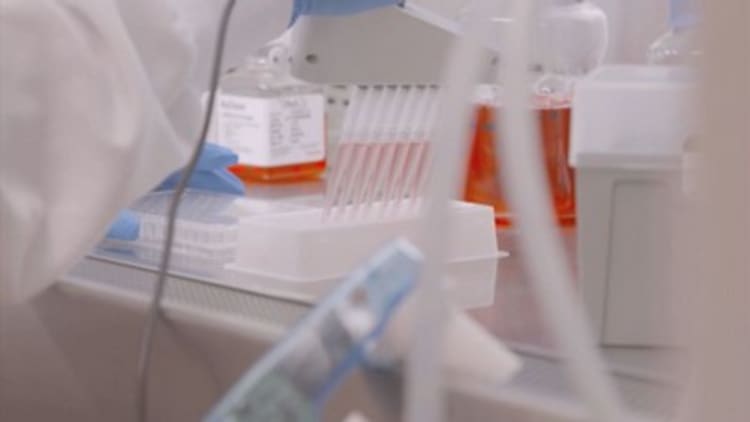Tests for Alzheimer's may need to look at a wider variety of memory loss signs and take place earlier in life, new research suggests.
A group of researchers from the United States and United Kingdom says that tests on animals indicate that Alzheimer's patients may benefit from earlier tests — especially on long-term memory loss — which they say is not part of clinical tests currently.
Catching Alzeimer's early is "widely recognized as a crucial step in the development of effective treatments for the disease," the researchers write in their study, published this week in the peer-reviewed journal Nature Communications. But they note that the signs of the disease are usually "extremely difficult to observe."
Study co-author Richard Morris, of the University of Edinburgh, noted that much Alzheimer's research has focused on the kinds of easily identified, severe symptoms that tend to show up later in Alzheimer's progression. But there is a problem with that approach, according to Morris.
If I could put it in its bluntest form, do you wait until Granny or Grandpa have full-blown Alzheimer's disease and then as a family sit around and say, 'What should we should do?' Or from the point of view of trying to think about new drugs, should we actually be looking at the very earliest stages, before there is massive pathology?Richard Morrisresearcher, University of Edinburgh
"As things developed in the last few years," Morris told CNBC, "there is a growing sense that by the time Alzheimer's is fully diagnosed, and plaques are formed in the brains of humans, it is almost too late to do anything. So instead of looking for these great big effects that reproduce the later stages of the syndrome, which was an important first step academically, maybe what we ought to be doing is is looking for the needle in the haystack."
Morris and his colleagues said they want to spur more discussion about the feasibility of early-stage tests, and whether they may help create new Alzheimer's drugs that might work better.
"If I could put it in its bluntest form, do you wait until Granny or Grandpa have full-blown Alzheimer's disease and then as a family sit around and say, 'What should we should do?' Or from the point of view of trying to think about new drugs, should we actually be looking at the very earliest stages, before there is massive pathology? Perhaps drugs would work much better there, if the brain was in that state, than in the more advanced state of pathology."

The researchers used a variety of transgenic mice for their study, which have been treated with mutations that create Alzheimer-like conditions in them. These so-called "PDAPP mice" have been used for years in studies around Alzheimer's. Morris thinks a constructive use for animals such as mice in Alzheimer's research might be to use them to identify these "really subtle, cryptic effects" of the disease that are not so easily seen in humans.
So Morris and his colleagues took healthy mice, and a group of mice in the very early stages of their Alzheimer's-like condition, and trained them to navigate their way to a hidden pool of water, using a series of signs and markers.
They then tested both mouse groups a week later, and noticed two striking differences.
First, the Alzheimer's group did significantly worse on the test — they were mostly unable to remember the location of the water dish.
Secondly the mice in the Alzheimer's group showed a remarkable drop in amount of the glucose, a type of sugar, their brains were taking up — a key measure of how much energy the brains were using.

"Our animals not only can't behaviorally remember what is happening, they are showing a metabolic deficit in the brain, at the same time," he said.
The fact that the tests were carried out on mice does present some key limitations: Morris urged caution in drawing conclusions about human health based on animal research. He also noted that some people are skeptical of the sort of "behavioral" data the team gathered in its study, as opposed to biochemical tests. But, he said, behavioral data are "very important because they relate directly to the human situation."
He said he hopes clinicians and pharmaceutical researchers will take seriously the idea of testing early-stage tests, including those for long-term memory, suggesting that even web-based tests people could take outside of hospitals may hold promise.


